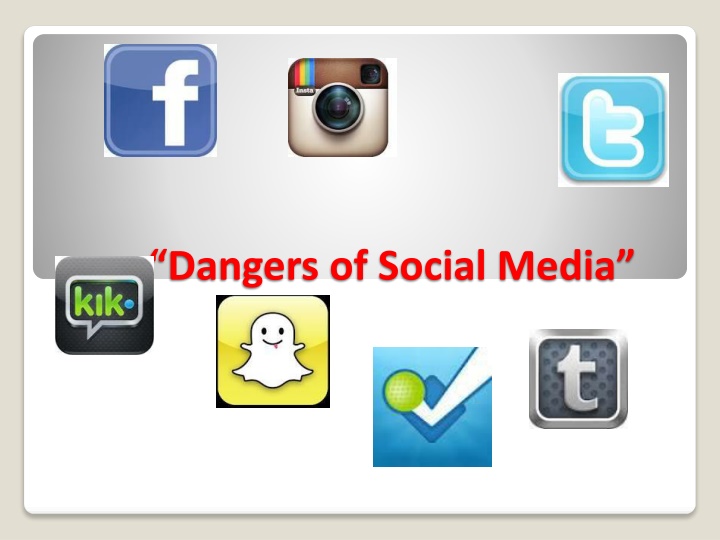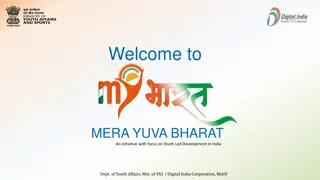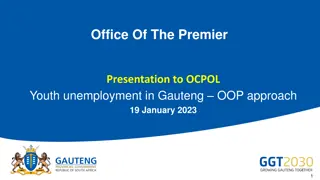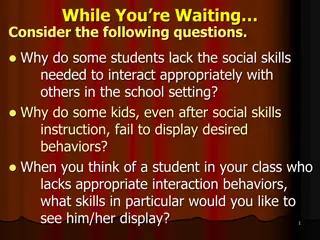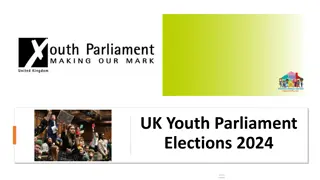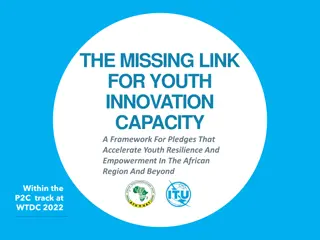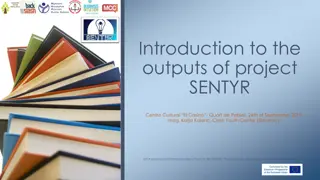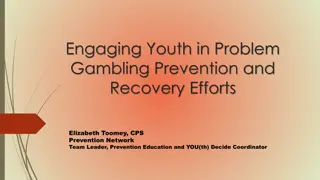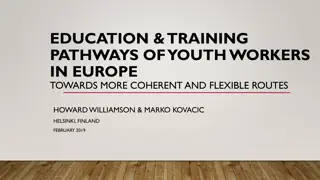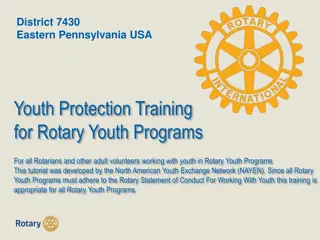The Impact of Social Networking on Youth's Communication Skills
Social networking platforms such as Facebook are influencing the social skills of today's youth, raising concerns about their future employability. The prevalence of cyberbullying on social media is also contributing to these worries. Parents are urged to monitor their children's online activities and communication habits to ensure they are developing proper communication skills. The potential consequences of relying too heavily on abbreviated language and fragmented sentences when it comes to future professional interactions are highlighted.
Download Presentation

Please find below an Image/Link to download the presentation.
The content on the website is provided AS IS for your information and personal use only. It may not be sold, licensed, or shared on other websites without obtaining consent from the author.If you encounter any issues during the download, it is possible that the publisher has removed the file from their server.
You are allowed to download the files provided on this website for personal or commercial use, subject to the condition that they are used lawfully. All files are the property of their respective owners.
The content on the website is provided AS IS for your information and personal use only. It may not be sold, licensed, or shared on other websites without obtaining consent from the author.
E N D
Presentation Transcript
http://t1.gstatic.com/images?q=tbn:ANd9GcSJ0lCGlKwqnGUTzPNqMnABkamoRaBIa636SUaOJHtJ0_Qu8o4iv-WpmxAghttp://t1.gstatic.com/images?q=tbn:ANd9GcSJ0lCGlKwqnGUTzPNqMnABkamoRaBIa636SUaOJHtJ0_Qu8o4iv-WpmxAg http://t1.gstatic.com/images?q=tbn:ANd9GcQrwooa9cj4xE1MfJV3wbi5TwrRXWzBMBHpeVPwsVFg4UKrt0sqeTjilTCt http://t0.gstatic.com/images?q=tbn:ANd9GcSEPUrQsHnysggdNChbfjkyL9FNBtkBnQOvBKawab7dhyZUB3KnTO5FBn4mQA Dangers of Social Media http://t0.gstatic.com/images?q=tbn:ANd9GcTBOOkNnurAQUHRHK5dOMR9hFZbchHBAvEbZOfdcp0dxG-Gj05fu8cbbUfg http://t1.gstatic.com/images?q=tbn:ANd9GcShOk3nkSAAJyR5nscvmEWurfOHaCINawDnKR-vhKlgJGJccPa-zedtm_-S http://t0.gstatic.com/images?q=tbn:ANd9GcQ1DWTQt6y_H1H811ZNJHMKYE6I2a2SXxHwQv8F8lNvjvc_c9xF_8AbZpo http://t0.gstatic.com/images?q=tbn:ANd9GcRTK2n0ILBd0fSVGq3vTPPxqkCeo9q4Rfh9GLDTElY3jFb3m15kLBDt6Io
Consumer Reports last year said 7.5 million children under the age of 13 were using the site (Facebook), including more than five million under the age of 10. High-profile cases of so-called cyberbullying have added to the concern. Facebook counts 900 million users around the world. by: Anton Troianonski and Shayndi Raice Facebook Explores Giving Kids Access
social networking is having an impact on the social skills of today s youth and I m worried about the effect it will have for my friends and peers in terms of employment. -17 year old recovering Facebook user
Will your child be able to get through life with fragmented sentences, abbreviated words and mere grunts if they can t be bothered speaking, but what happens when they leave the security of the school yard? when they re meeting a possible employer and can t construct a proper sentence let alone participate in a whole verbal conversation without mentioning an LMFAO or WTF or OMG or yep or huh ???
When was the last time you checked your child s: Contact list on their cell phone Application (app) downloads on the iPad, iPods, phones, or other devices Song downloads for appropriate/inappropriate artists/lyrics Photos/videos on their devices Understanding about social networking
When was the last time you allowed your child to: Be alone with 50, 100, or 500 people that you didn t know? Take a selfie picture while wearing a bathing suit and have it plastered on a billboard over 459? Be alone with a boy or a girl for an undetermined amount of time because he/she is one of their friends ? Gather all 500 of his/her friends for a get together at your house? Repeatedly get bullied, ridiculed, exploited, or manipulated while you stood around and watched? Drink a beer or a glass of wine or smoke a cigarette, just because you said it was ok (one little fib) and not dangerous as long as you re careful and talk to me about it despite the age restrictions?
Social Networking It s all those things you would NEVER allow your child to do in your presence, at any age especially UNDER AGE 13! As a matter of fact there s no guarantee it won t be just a dangerous and harmful to those that are OVER 13!
SOCIAL NETWORKS LIKE: Facebook Twitter Kik Tumblr Snapchat Instagram FourSquare to name a few of the most popular TODAY (THERE WILL BE A NEW APP tomorrow!) CREATE UNNECESSARY SOCIAL PRESSURES FOR OUR STUDENTS
Across the nation, millions of young people are lying about their ages so they can create accounts on popular sites like Facebook and other sites of app accounts . These sites require users to be 13 or older, to avoid federal regulations that apply to sites with younger members. But to children, that rule is a minor obstacle that stands between them and what everybody else is doing. Parents regularly go along with the age inflation, giving permission and helping children set up accounts. They often see it as a minor fib that is necessary to let their children participate in the digital world. WHAT ARE WE DOING? THIS SETS OUR YOUNG KIDS UP FOR DISASTER
These websites and apps encourage: Sharing photos Finding new friends even TALKING TO STRANGERS like Omegle chatroom Building stronger friendships/relationships Networking with like-minded people (ok?) Keeping in touch with one another Strong safety precautions Privacy, privacy, privacy! Right! Individuality, free expression, just be yourself You ll have a million friends and 424 likes on your photo by bedtime-- if you follow me, I ll follow you back Nobody will ever see your picture after 10 secs (snapchat) WRONG! Your parents won t tell you about what your friends are chatting about on the bus or in the hall just go to tumblr and you can find a picture of it free and uncensored! OR type in what you want to see at Instagram .
In actuality. these sites/apps create:
researchers and other critics say allowing children to break the rules sends the wrong message. And, they argue, it sets children loose in a digital world they may not be prepared for exposing them to the real-life threats of inappropriate content, contact from strangers and the growing incidents of bullying by computer .
